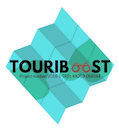IO 4
VALIDATING PROFESSIONAL SKILLS TO SUPPORT LOCAL STAKEHOLDERS ACCESS KEY TOURISM MARKETS AND INVEST IN TOURISM INNOVATION
From December 2018 to September 2019
IO4 will develop a competence profile with the necessary qualifications that tourism professionals should have and learning outcomes supposed to achieve for/while working for an organization and in the sector in general. Further, IO4 will develop a system of certification using three main steps: (1) CV evaluation, (2) on-line test and (3) case study presentation. The participants in the pilot process performed in IO3, in each of the participating countries, will be tested on their knowledge, skills and competencies which they have acquired informally through their work, through the delivery of the 6 Local Attraction Plans.
The certification will establish trust between partners on assessment procedures and the learning outcomes among trainees. The e-learning platform in IO2 (MOOC) will be developed with information and materials for all interested parties. The development of the professional outline of the “Heritage Experience Planner” aims towards the certification of learning achievements as they result from different educational paths.
The basic and individual professional functions that compose the job description of a profession or a specialty as well as the relevant knowledge, skills and competences that are required for the exercise of the profession will be defined in the Professional Outline (content of the profession; qualifications that are required for the exercise of the profession, ways of qualification acquisition). The analysis of the profession will take place in 4 levels: main professional functions (basic and secondary); professional functions (professional activities); professional tasks and knowledge, skills and competences. For the needs of the development of the Professional Outline will be utilized as tools for the collection of information: bibliographical desk research, the adapted to the needs of the Professional Profiles method known as Delphi and procedures of evaluation and feedback.
The Training will result in the recognition and validation of acquired skills. The European Qualifications Framework (EQF) is a reference framework to link qualifications systems and strives to increase transparency of qualifications, while also increasing the mobility of citizens and the facilitation of lifelong learning (https://ec.europa.eu/ploteus/en).
The EQF allows for a standard referencing level 1-8 ranging from basic to advanced qualifications. These 8 reference levels are based on a concept of learning outcomes, recognizing the knowledge, skills and competences acquired by individuals in all educational paths. Each learning outcome is defined as “what a learner knows, understands and is able to do on completion of a learning process. By applying an EQF Certification, IO4 defends youth employability and the improvement of professional statuses higher skilled workers. The qualification type selected shall be defined by a specification, which includes the following features:
- Title: EQF (Level 06) Certificate
- Level: Qualification Type 06 “Advanced knowledge of a field of work or study, involving a critical understanding of theories and principles
- Brief description: to the qualification type to facilitate its understanding and use
- Volume: the “amount” or “volume” of the learning outcomes and its transfer the European Credit Transfer System (ECTS)
- Purpose: supplementary/special purpose
- Educational Sector: HE
- Relation to Employment: outlines of the nature and range of employment an opportunity, which relate to qualifications of the type and refers to professional rights
- Access / development potential: The type of qualifications will provide the necessary information on access to the training program leading to the acquisition of qualifications of the type by the Project and the development potential of the holders of qualifications through learning opportunities which either lead to qualifications at the same level or at a higher one.
